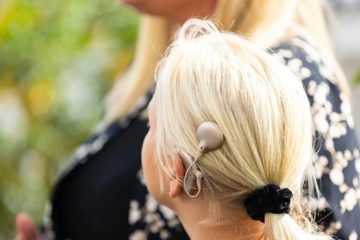Miriam Naddaf in Nature:
 Stimulating neurons that are linked to alertness helps rats with cochlear implants learn to quickly recognize tunes, researchers have found. The results suggest that activity in a brain region called the locus coeruleus (LC) improves hearing perception in deaf rodents. Researchers say the insights are important for understanding how the brain processes sound, but caution that the approach is a long way from helping people. “It’s like we gave them a cup of coffee,” says Robert Froemke, an otolaryngologist at New York University School of Medicine and a co-author of the study, published in Nature on 21 December1. Cochlear implants use electrodes in the inner-ear region called the cochlea, which is damaged in people who have severe or total hearing loss. The device converts acoustic sounds into electrical signals that stimulate the auditory nerve, and the brain learns to process these signals to make sense of the auditory world.
Stimulating neurons that are linked to alertness helps rats with cochlear implants learn to quickly recognize tunes, researchers have found. The results suggest that activity in a brain region called the locus coeruleus (LC) improves hearing perception in deaf rodents. Researchers say the insights are important for understanding how the brain processes sound, but caution that the approach is a long way from helping people. “It’s like we gave them a cup of coffee,” says Robert Froemke, an otolaryngologist at New York University School of Medicine and a co-author of the study, published in Nature on 21 December1. Cochlear implants use electrodes in the inner-ear region called the cochlea, which is damaged in people who have severe or total hearing loss. The device converts acoustic sounds into electrical signals that stimulate the auditory nerve, and the brain learns to process these signals to make sense of the auditory world.
More here.
